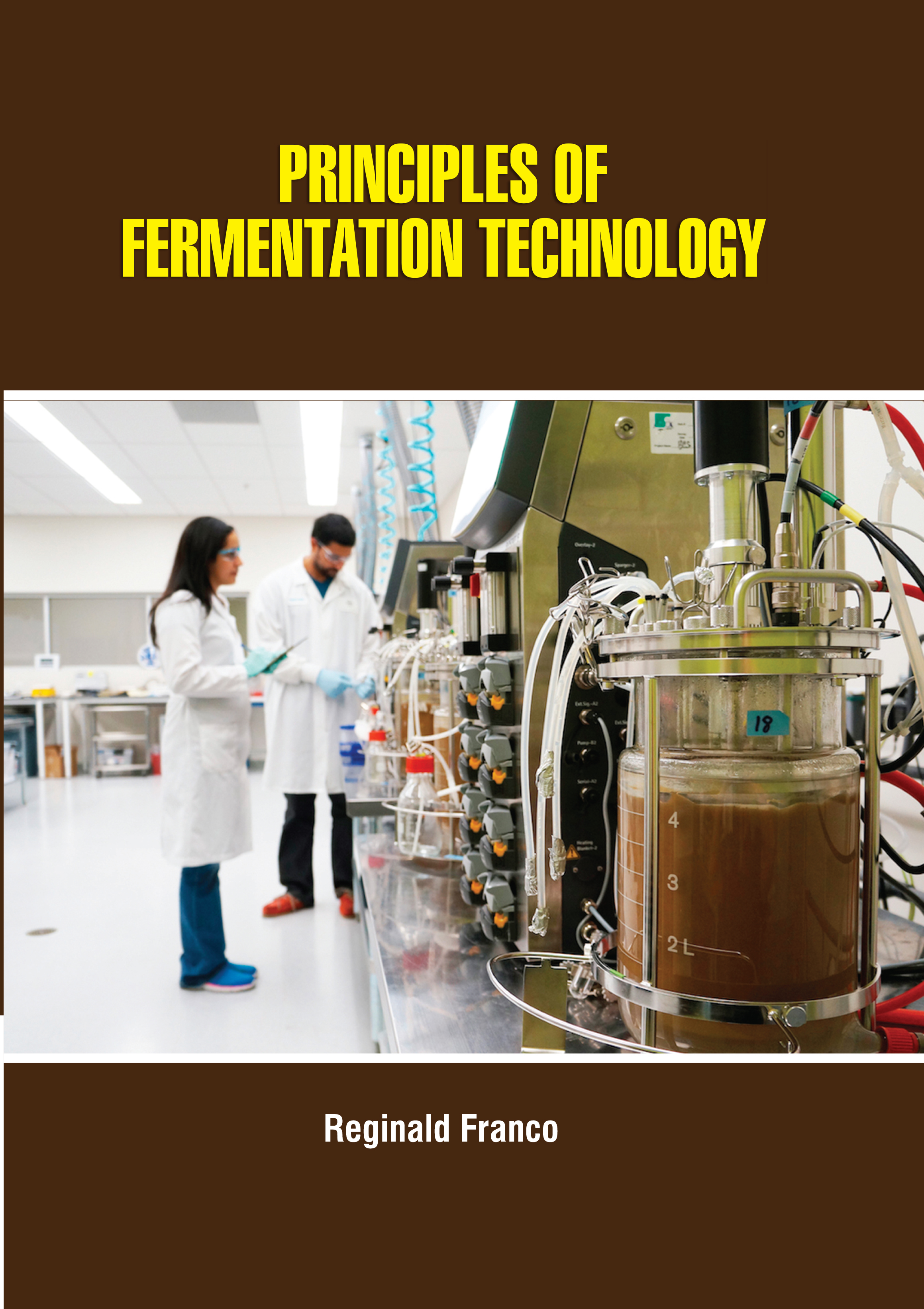
Principles of Fermentation Technology
by Reginald Franco
| ISBN | 9789372425550 |
|---|---|
| Publisher | Digital Drive Learning |
| Copyright Year | 2026 |
| Price | $258.00 |

by Reginald Franco
| ISBN | 9789372425550 |
|---|---|
| Publisher | Digital Drive Learning |
| Copyright Year | 2026 |
| Price | $258.00 |
Fermentation is the process involving the biochemical activity of organisms, during their growth, development, reproduction, even senescence and death. Fermentation technology is the use of organisms to produce food, pharmaceuticals and alcoholic beverages on a large scale industrial basis. Fermentation is a metabolic process in which an organism converts a carbohydrate, such as starch or a sugar, into an alcohol or an acid. For example, yeast performs fermentation to obtain energy by converting sugar into alcohol. Bacteria perform fermentation, converting carbohydrates into lactic acid. The study of fermentation is called zymology. Fermentation technology encompass a broad field, but within this profile we target the use of microorganisms and/or enzymes for production of compounds that find application in the energy, chemical, material, pharmaceutical and the food sector. Even though fermentation processes have been used for generations, the requirement for sustainable production of energy and materials is demanding innovation and development of novel fermentation concepts. Our efforts are directed both to the development of cell factories and enzymes as well as of design of novel process concepts and technologies for fermentation processes. We have a strong infrastructure with a large number of state-of-the-art fermentors as well as a strong accompanying analytical platform that allows for careful analysis of fermentation products as well as intracellular metabolites and whole genome analysis. Furthermore, we also have a platform for enzyme discovery and heterologous production of target enzymes. This book is of great interest to final year and post-graduate students of applied biology, biotechnology, microbiology, biochemical and chemical engineering.